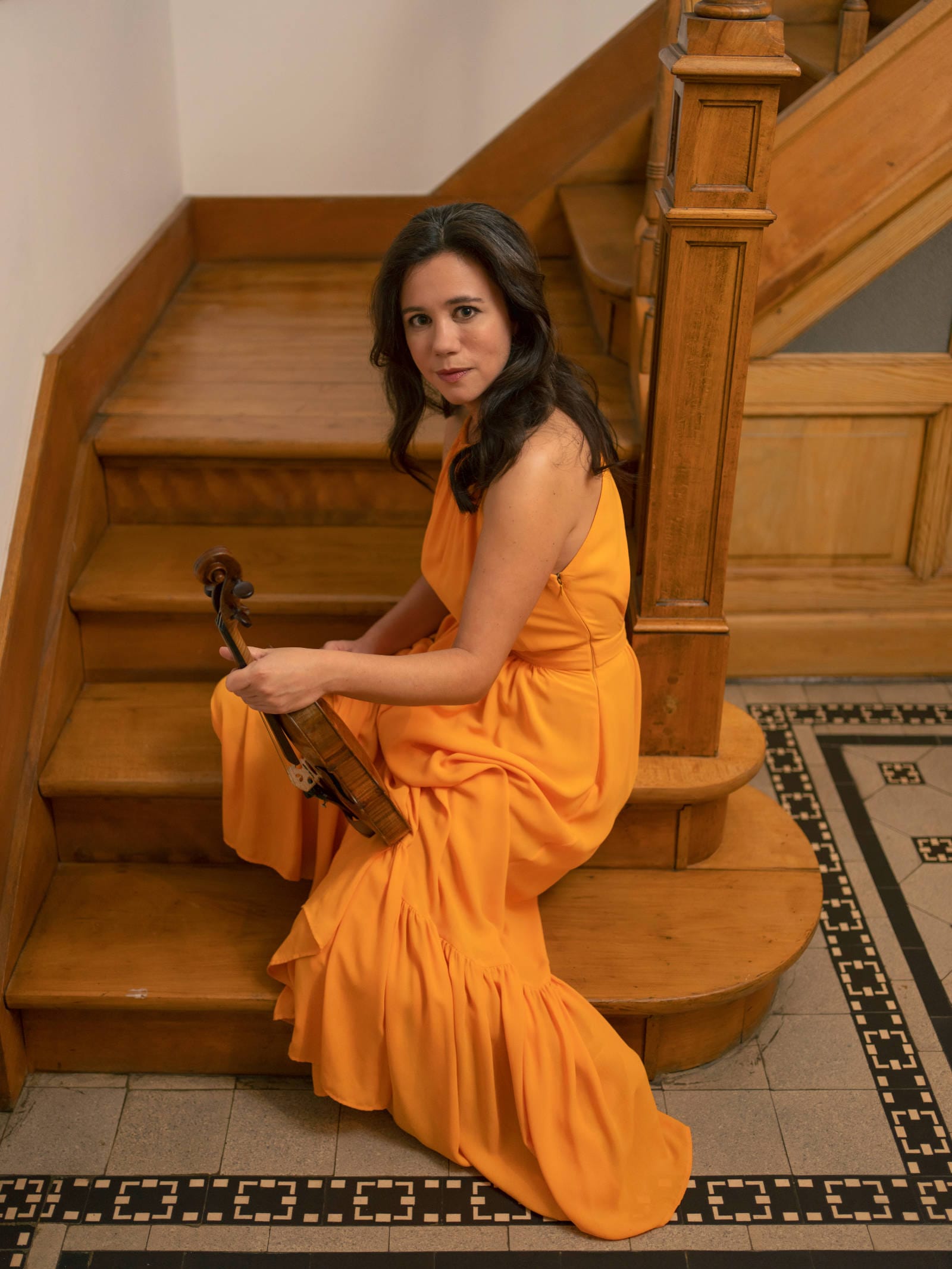
Discography

Change
Eleven songs of struggle, of resistance.
Eleven fists in music raised to inspire change.
Elsa de lacerda, violin
Pierre solot, piano
HAROLD NOBEN Apesar de você
GWENAÈL GRISI Grândola, vila morena
FABIAN FIORINI Disapparition
BENOIT MERNIER Strange fruit
MARGARET HERMANT Rainbow
CLAUDE LEDOUX Laphiekhona
APOLLINE JESUPRET De mille murmures
KAROL BEFFA Tabula rasa
JEAN-LUC FAFCHAMPS Ain't got no…
GWENAËL GRISI Bella ciao
ALEXANDER GURNING Independance chacha
It was an evening in May 2020. We were all cooped up, under the siege of the pandemic, at the mercy of our own company, away from the normal hustle and bustle of everyday life.
Some violent new words had just been added to this seclusion by the media hounds: certain professions, certain vocations, certain ways of life were more ‘essential’ than others. And among the ‘others’: musicians.
That evening in May 2020, Elsa showed me a video, a few minutes long, showing Zeca Afonso striking up an a cappella version of Grândola, Vila Morena in Lisbon’s Coliseu in 1983. A huge crowd followed him at the tops of their voices, some with their arms raised, in a deeply moving throwback to the Carnation Revolution, to that night of 25 April 1974 when the song, censored for its message of solidarity, was broadcast on the radio to announce to the Portuguese people that the Revolution that would overthrow Antonio Salazar’s regime had begun.
In History, music has played various roles: practical, concrete, powerfully unifying, an essential role. Over time, the CHANGE project took root: we would sublimate the memory of these musics that have changed the world, dive into these turning points in the history of societies, these moments of revolution and resistance, with the perspective of the dreams and fears of today.
We picked out eleven melodies, airs and songs. But it was not enough to simply play them, without a word. We wanted to take a more active look at these necessary memories.
So we commissioned ten Belgian and French composers, young and not so young, men and women. They each chose a melody, a struggle, and had free rein to transform these musical moments into their own music, their own vision of these influential moments in history.
After Grândola, our Belgian side couldn’t ignore Independence Cha Cha, the song by Le Grand Kallé that announced independence to the people of the Congo in 1960 via Radio Congo Belge, and that has become a largely anti-colonial anthem.
It was in South Africa in 1988 that Johnny Clegg, the ‘White Zulu’, first sang Asimbonanga, meaning ‘We have not seen him’, referring to Nelson Mandela, the man imprisoned since 1964. Clegg sings in Zulu and in English, denouncing Apartheid and leaving a song taking a stand against racism.
Strange Fruit evokes that odd fruit hanging from a tree, and the smell of burning flesh. The year is 1939 and in Café Society in New York, Billie Holiday has for the first time brought her fragile vibrato to this profound song about the lynching of African-Americans in the United States.
In line with these great musical milestones towards civil rights in the United States, Nina Simone first released Ain’t Got No, I Got Life in 1968, a song that lists her hardships as a woman of colour before moving on to the jubilant I Got Life, which pushes the feminist voice in the centre of racist America.
Further south, in Chile, in 1973, the group Quilapayùn and Sergio Ortega composed El Pueblo Unido Jamás Será Vencido (The people united will never be defeated) in just a few hours. It is a song in support of Salvador Allende, of the Chilean people violated by the military coup d’état and the bloody rule of Augusto Pinochet. The song was taken up all over the world as a symbol of solidarity, for freedom from oppression.
In a Brazil also under dictatorship, in 1970, Chico Buarque hid his criticism of the leadership in a love dispute in his song Apesar de Você, an effective disguise that evaded censorship and whispered to Brazilians these words of resistance in swaying rhythms: “In spite of you / Tomorrow will be another day / I ask you / Where you will hide?”
In Europe, the song Bella Ciao has become a hymn of resistance, voicing the refusal of fascism by Italian partisans in the Second World War. It began as a melody sung by women working in the paddy fields in the early 20th century, expressing the awful lives of the proletariat at the time.
Around the world, the rainbow flag symbolises the fight against discrimination against people referred to as LGBTQIA+, and the desire to put an end to the awful categorisation of the human race according to sexual orientation. Harold Arlen’s Over the Rainbow, a far cry from the dreams of the young Judy Garland in The Wizard of Oz, is a song that surpassed its author and become political.
In Germany in 1990, after the fall of the Berlin Wall, the band Scorpions composed Wind of Change. The communist bloc had collapsed, East and West Germany were being reunited and the song became famous around the world.
Finally, L’Internationale by Eugène Pottier and Pierre De Geyter has been in existence since the 19th Century, shining a light on workers’ and social struggles, symbolising utopia and unity since the time of Paris Commune, the Russian Revolution and even bringing together students rebelling in Tiananmen Square in 1989.
— Pierre Solot
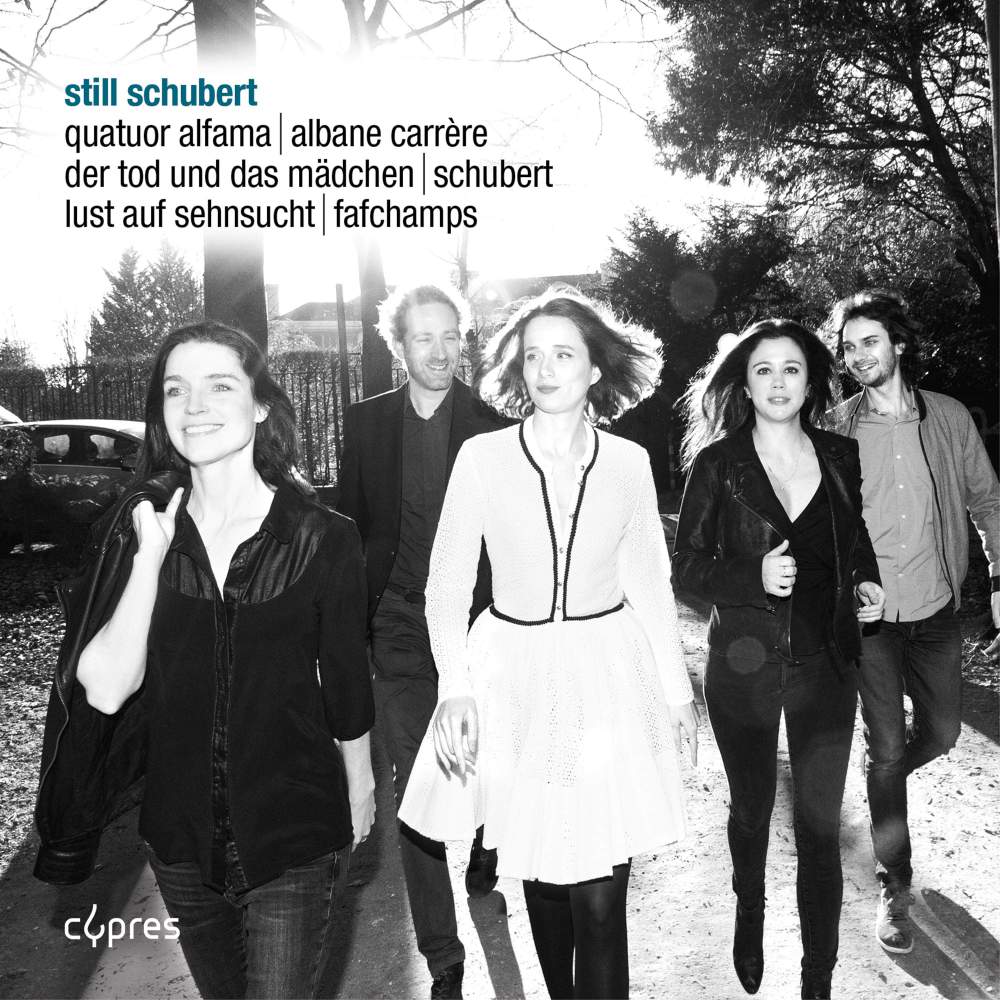
Still Schubert
SCHUBERT, FAFCHAMPS
Octave de la Musique Award 2020
Albane Carrère, mezzo-soprano
& Quatuor Alfama
Elsa de Lacerda, violin
Céline Bodson, violin
Morgan Huet, viola
Renaat Ackaert, violoncello
F. SCHUBERT
Death and the Maiden
L. FAFCHAMPS
Lust auf Sehnsucht
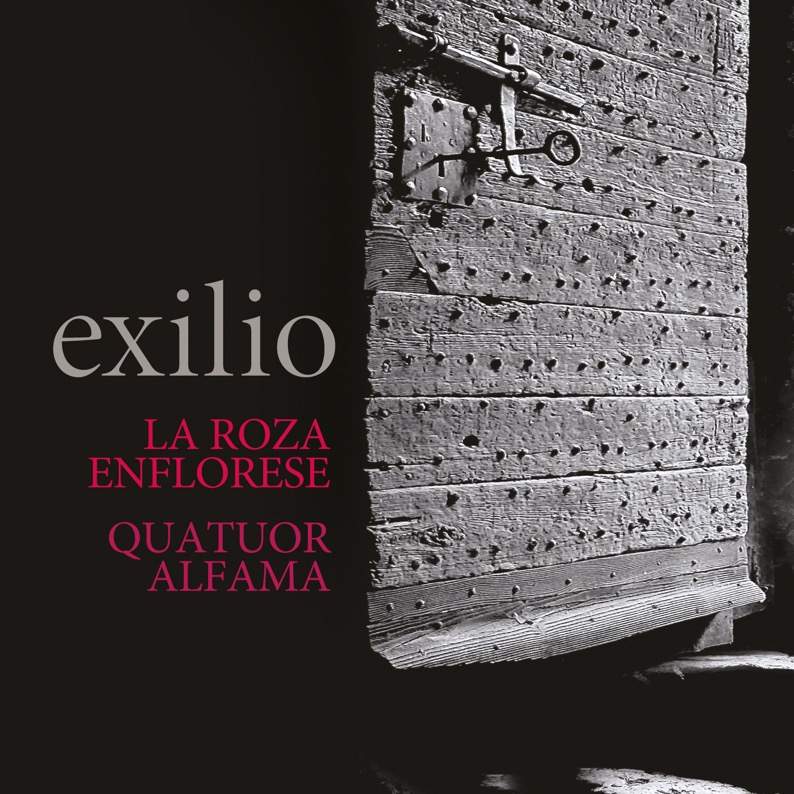
Exilio
Edith Saint-Mard, voice
Anne Niepold, diatonic accordion
Bernard Mouton, recorders
Philippe Malfeyt, vihuela, oud
Vincent Libert, percussion
Elsa de Lacerda, violin
Céline Bodson, violin
Morgan Huet, viola
Renaat Ackaert, violoncello
“The violins weep for a lost time that will not return,
The violins weep for a lost homeland that will perhaps return.— Mahmoud Darwich
On the 31st March 1492, the Catholic monarchy expelled the Jews from Castile and Aragon. Between 70,000 and 170,000 people left their Iberian homeland in definitive exile. The programme of this CD is a testimony to the exile of a people, but also to an exile of hearts of which medieval courtly lyricism has probably handed down to us one of the most beautiful testimonies. Nostalgia for a country, the wandering of a desperate heart and the rejection of a world of appearances are among the many exiles that have inspired this work.
To follow in the footsteps of this diaspora, which is conducive to cultural encounters, La Roza Enflorese joined forces with Quatuor Alfama to perform a Judeo-Spanish repertoire embellished with polyphonies from the Spanish Renaissance and original compositions by Philippe Malfeyt based on poems by Pablo Neruda.
When Flagey commissioned us to come up with a new work in 2013, two ideas immediately came to mind: to associate ourselves with a classical formation – and what could be more classical than the string quartet – and to allow ourselves to explore repertoires other than that of the Sephardic tradition which has occupied us for so many years. These two choices would revolutionise the way we work. The idea was not that all 9 of us would improvise countermelodies to a monody, but that we would write arrangements that were sufficiently elaborate to exploit the richness of the string quartet, and why not venture into composition?
We owe this magnificent work, which combines historical and traditional instruments with modern ones so well, to Philippe Malfeyt. He creates a modern universe filled with both ancient and popular sounds from which a particular nostalgia emanates.
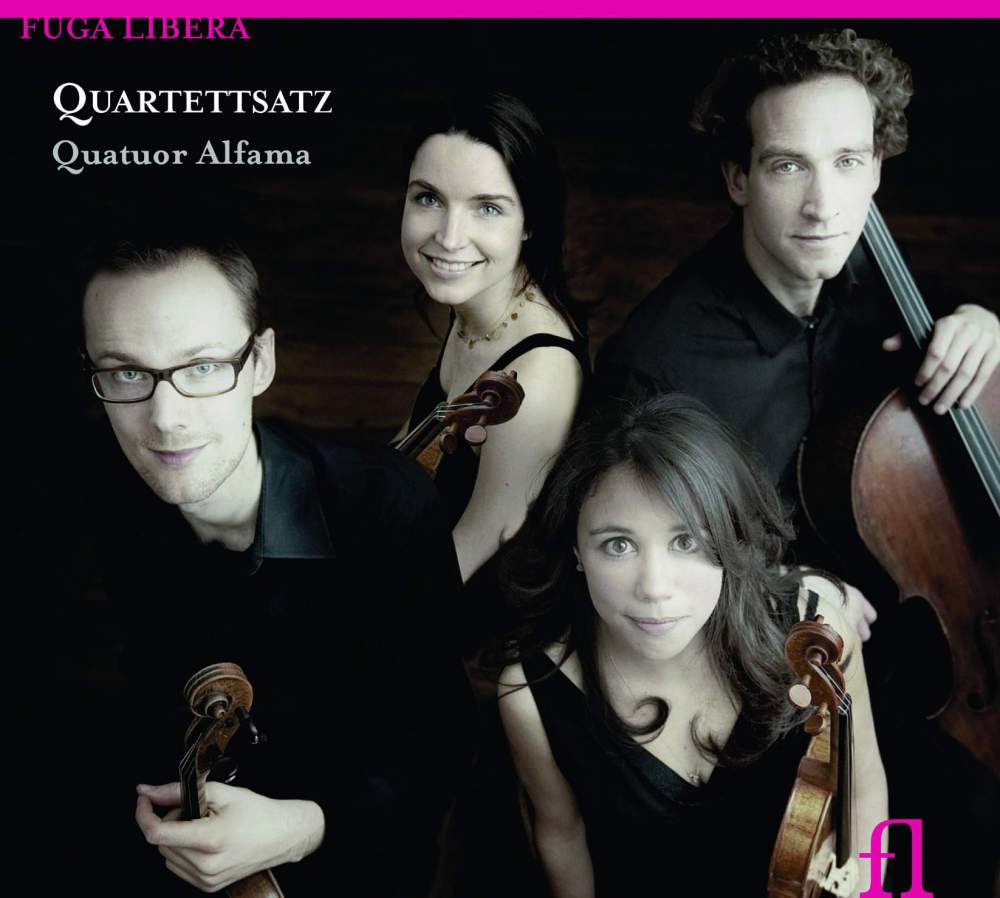
Quartettsatz
WOLF, WEBERN, MENDELSSOHN, RACHMANINOV…
Elsa de Lacerda, violin I
Céline Bodson, violin II
Kris Hellemans, viola
Renaat Ackaert, violoncello
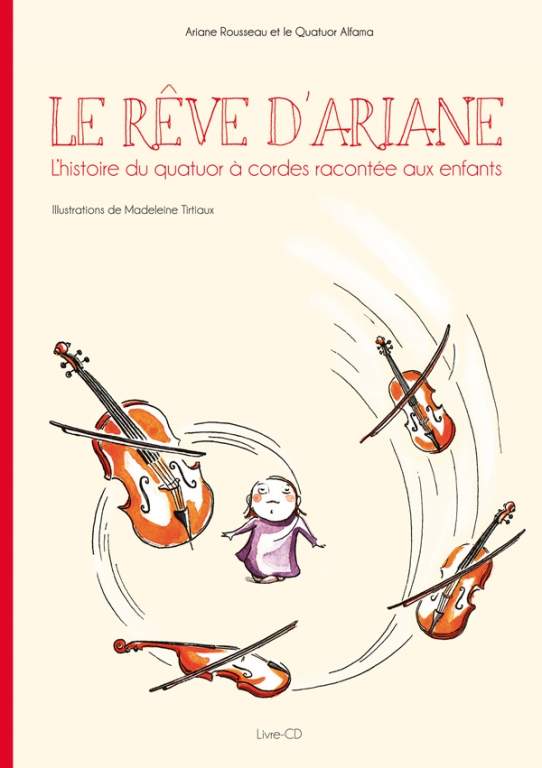
Ariane's Dream
L'histoire du quatuor à cordes racontée aux enfants.
The history of the string quartet told to children.
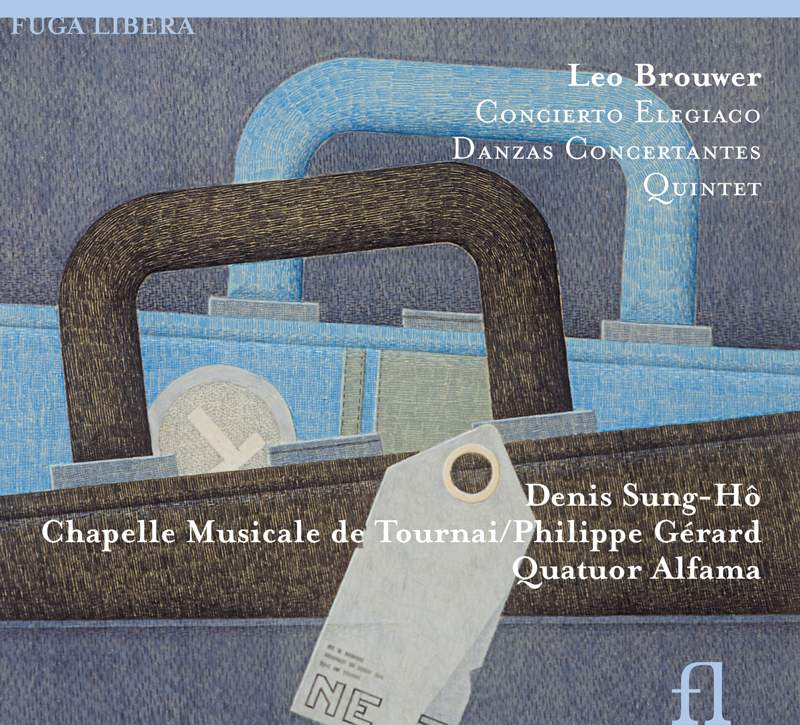
Leo Brouwer
Concierto Elegiaco
Denis Sung-Hô, guitar
Quatuor Alfama
L. BROUWER
Concierto Elegiaco
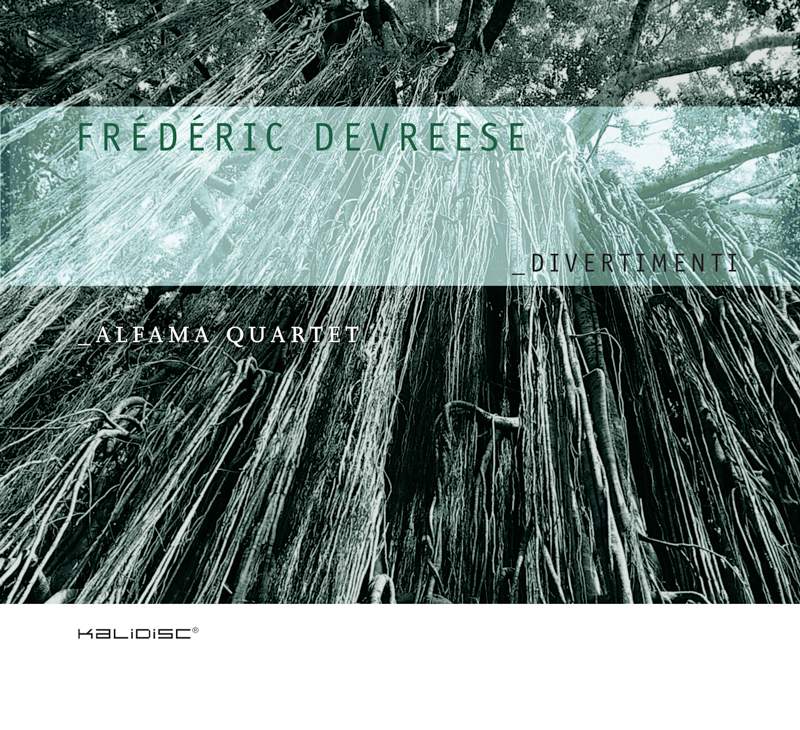
Frédéric Devreese
Divertimenti
Quatuor Alfama
Elsa de Lacerda, violin
Ales Ulrich, violin
Sarah Charlier, viola
Renaat Ackaert, violoncello
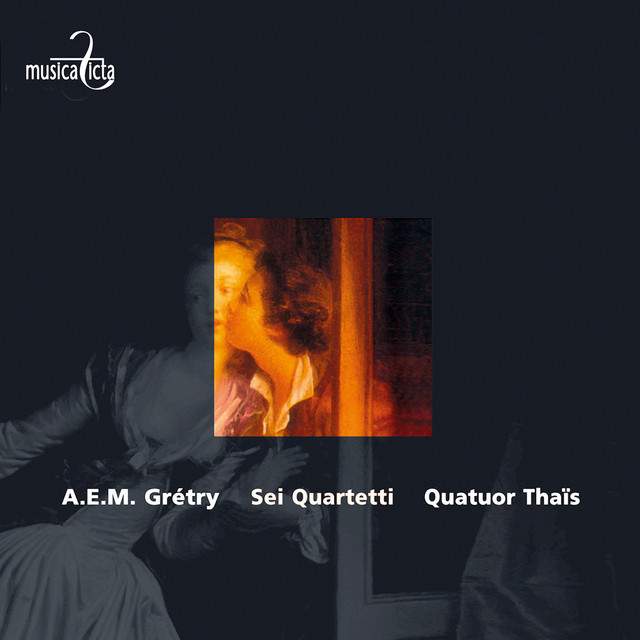
A.M. Gretry
Sei Quartetti
Quatuor Thaïs
Caroline Bayet, violin
Elsa de Lacerda, violin
Wendy Ruymen, viola
Kathy Adam, violoncello